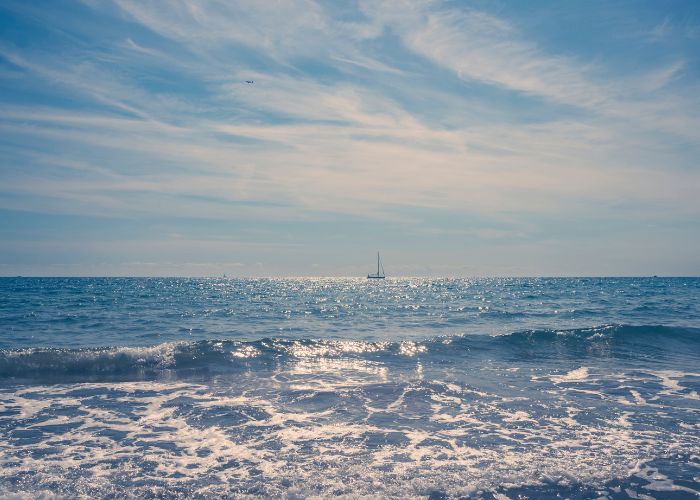Last week, the temperatures of the water in some parts of the western Mediterranean reached the 30-degree mark. In any case, the water was up to five degrees warmer in recent days than in previous years. This is especially damaging to flora and fauna!
An unusual temperature for the season which, according to the doctor of physics at the Spanish weather bureau Aemet, Juan Jesús González, would even meet the criteria of a ‘heat wave at sea’. The values are abnormally high and the situation, if it spreads, could affect biodiversity and contribute to the emergence of extreme meteorological phenomena.
‘The Mediterranean Sea is becoming more and more like the Caribbean,’ states the expert, who already warned in 2019 of the increased risk of hurricanes in this sea due to global warming. ‘The predictions are coming true’, and therefore it is also likely that high temperatures will be repeated here more often in the coming years, until ‘the abnormal is now normal’.
Like González, geographer Samuel Biener of the University of Alicante’s Climatology Laboratory points to more sweltering nights. In autumn, the water temperatures could lead to the development of a DANA. And in the long term, wildlife suffers the most from high water temperatures.
Marine heat wave
Already since the end of May the water is much warmer than normal with more than 28 degrees Celsius, while in the same month in 2021 the maxima were around 25 degrees Celsius. In mid-July, the water passed the 30-degree mark. In Spain, water temperatures are highest around the Balearic Islands. The fact that these high temperatures continue means that experts are talking about a ‘marine heatwave’. This is the case when very high temperatures are measured continuously over a number of consecutive days.
Will the levante turn the tide?
However, the easterly wind, the levante, over the next few days could help to slow the temperature rise, suggests Biener. Although forecasts for next week are not optimistic. ‘It is possible that the heat will be quite intense again in August’.
Previous heat waves at sea
Heatwaves at sea have always existed, both occasional and exceptional. Some examples are the summer of 2003, when it reached 31 degrees in some parts of the Balearic Islands, and that of 1994, with values up to 30, reports the UA geographer. What the Mediterranean Sea is experiencing now does not mean that such high temperatures will also prevail in 2023. We might even get an abnormally cold summer,’ says Vargas. The problem, they stress, is that these occurrences are becoming more frequent.
‘Where we used to have a heatwave maybe every 20 years, now there might be two in a five-year period,’ says the scientist, who observes a very clear trend in recent decades that may take us to 28 degrees Celsius by the end of 2030, a value comparable to that of the Caribbean. Biener speaks of a process of ‘tropicalisation’.
Mediterranean Sea is a hotbed
It is a fact that the Mediterranean Sea is ‘one of the hotbeds of global warming’, one of the seas where water temperatures are rising most rapidly. Therefore, González analyses, ‘what is abnormal now may be normal in 30 years’ time. There are more and more particular cyclones in the Mediterranean that resemble tropical cyclones in the Caribbean’, but the temperature increase could have more long-term consequences.
Sweltering nights, loss of biodiversity and increased risk of extreme rains
The impacts of frequent temperature increases in the Mediterranean are varied and complex. Already the ‘suffocatingly hot nights’ are noticeable.
In the long term, marine ecosystems could suffer the most severe consequences. If this heatwave does not last too long, they should not suffer any major disadvantages, although corals, for example, could be affected. But if temperatures continue to rise, this could lead to the migration or extinction of some living things and, on the contrary, to an excessive increase in other species.


